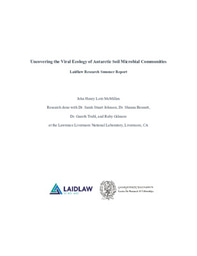The week began on the river in a canoe, paddling wildly with a carved leaf-shaped oar, as my shipmates and I tried to evade our pursuers. Laundry days in the community were often spent similarly: playing in the river with the local kids, and soccer with our rainforest guides on the uneven muddy fields. As the trip was winding down, our group’s relationships had deepened. The second multi-day expedition was smoother, more confident, and filled with small but meaningful moments—canoeing with friends, failing at fishing, camping tent card games, and laughing after almost stepping into the tawampa of an electric eel.
Leadership at this stage meant gratitude. Making sure everyone was thanked and appreciated properly mattered just as much as setting up equipment or collecting data. At this point, I had become familiarized with the Maijuna's culture of gift giving. Instead of ephemeral, transactional relationships, friendships between community members were built on the expectation of mutual altruism and appreciation. Leadership was not just about directing tasks, but about sustaining relationships in ways that ensure conservation partnerships remain ethical and long-term.
I also was learning how conservation isn’t just about science, but about tradition, culture, and history. OnePlanet’s work with the Maijuna showed me how important it is to empower communities socially, culturally, and politically, not just protect biodiversity in the abstract. Most of all, Sucusari modeled how conservation can be baked into the social fabric of a society. Successful conservation is only possible through sustainable, circular relationships between humans and wilderness. Contrasting our commercialist, individualist culture in the US, the citizens of Sucusari maintained a deeper awareness of the interconnectedness that they were a part of, and consciously avoided overexploiting the abundant natural resources that surrounded them. Instead of dominating local mammalian populations, they hunted in accordance with each specie's mating patterns, never overreaching beyond what the ecosystem could sustain. At the same time, the community was organized by deeply rooted unwritten social norms, in which different hunters would respect each other's ancestral hunting lands, and the interests of the community were put before personal gain when interacting with external parties looking to use their lands for profit.
The horizon of the journey's end was approaching ever nearer, but the work in Sucusari was not done. After being welcomed into this community, the rainforest had begun to feel like home for me too, and I knew that I'd continue to carry a deeper sense of responsibility towards this place, even after leaving. The Maijuna continue to fight for their political and conservation goals of regional sovereignty, and cultural and ecological preservation after I get to go home. At the very least to honor the kindness and hospitality they showed our team, and their multigenerational stewardship and management of this critical region of the planets carbon system, I had to start thinking of ways to stay engaged.


Please sign in
If you are a registered user on Laidlaw Scholars Network, please sign in